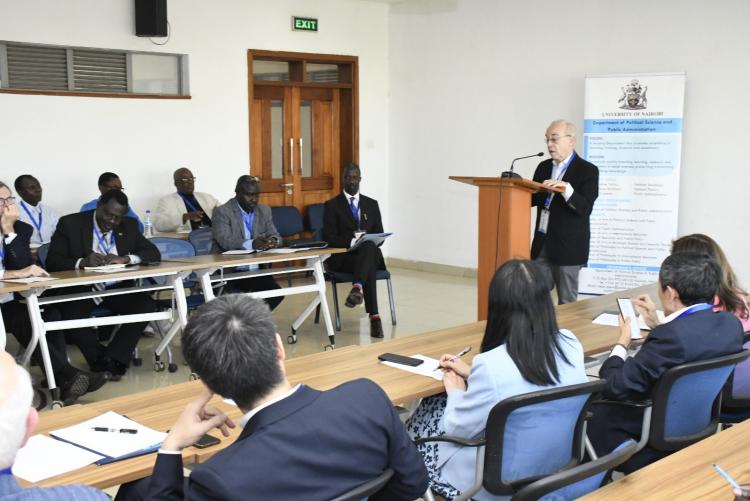Trilateral Development Dialogue: U.S.-China-Africa Cooperation in Focus at UoN
On Tuesday, January 7, 2025, the University of Nairobi’s Department of Political Science and Public Administration transformed its iconic Towers into a vibrant arena for intellectual exchange. Academics, students, and international stakeholders convened for a roundtable discussion on a critical topic: "Trilateral Development Dialogue to Action (TD2A): U.S.-China-Africa Cooperation."
The event aimed to reimagine Africa’s development trajectory by fostering collaboration between the U.S., China, and African nations. Key sectors on the agenda included finance, agriculture, public health, and education, all critical to a sustainable and inclusive future for the continent.
Guided by thought-provoking questions, participants dissected the intricate web of relationships between Africa, the U.S., and China, discussions centered on challenges such as geopolitical realities and decision-making authority in Africa’s development projects. Central questions emerged: How should African nations navigate their relationships with two global powerhouses without compromising sovereignty? Who holds the reins in Africa’s development projects—the host countries or their donors?
Participants pointed out stark contrasts in how the U.S. and China engage with Africa. The U.S. emphasized public-private partnerships and highlighted its commitment to transparency, noting that financial data for development projects spanning 25 years is available on U.S. Embassy websites. On the other hand, China’s approach, seen as more elite-focused, faced scrutiny over transparency. However, Chinese representatives affirmed their dedication to genuine partnerships, emphasizing rigorous auditing processes and a commitment to eliminating underperforming companies.
The dialogue also highlighted Africa’s untapped potential and the opportunities that trilateral cooperation could unlock. With over 60% of Africa’s 1.7 billion population being youth, participants stressed the importance of investing in education, particularly STEM (Science, Technology, Engineering, and Mathematics), to drive innovation and economic growth. Groundwater resources also emerged as a key focus area for irrigation and human consumption, promising significant improvements in agriculture and public health.
As the discussions unfolded, a shared vision for Africa’s future began to take shape. Participants agreed on several actionable recommendations. Initiatives must prioritize areas like education, innovation, and resource management to address the continent’s unique challenges. Both the U.S. and China were urged to uphold transparency in their development engagements, ensuring that African nations retain agency over their projects. Additionally, insights from the dialogue will be compiled into academic publications to influence policies at institutional and governmental levels.
The roundtable discussion not only fostered a deeper understanding of U.S.-China-Africa relations but also set the stage for actionable solutions to Africa’s development challenges. By bringing together diverse voices and perspectives, the University of Nairobi reaffirmed its role as a hub for thought leadership and policy innovation.
As Africa continues its journey toward sustainable growth, events like the TD2A dialogue are crucial for shaping a future defined by collaboration, accountability, and shared prosperity.

